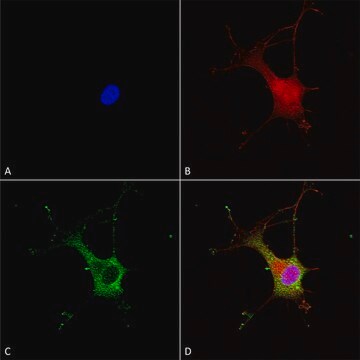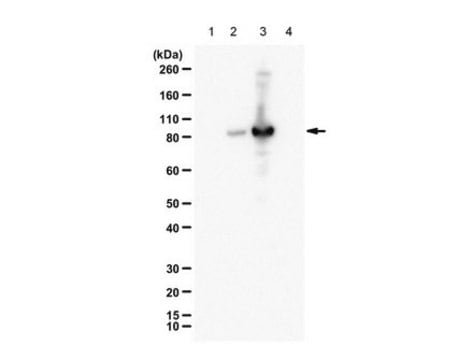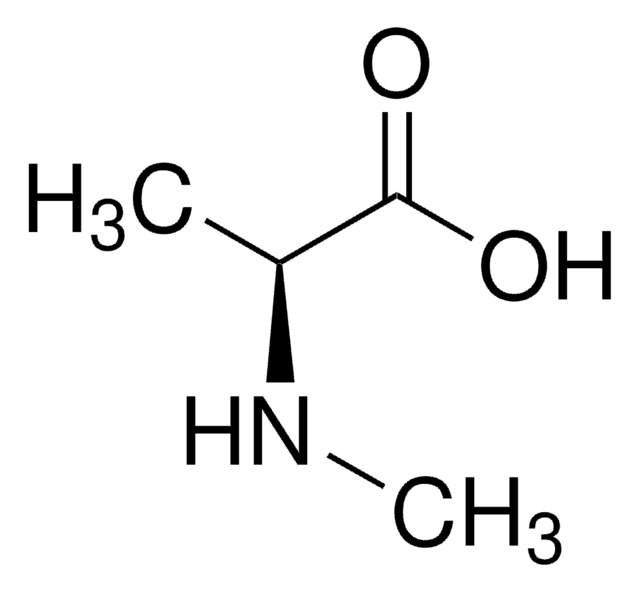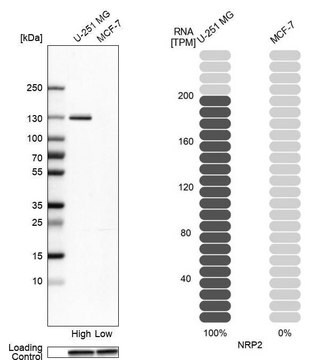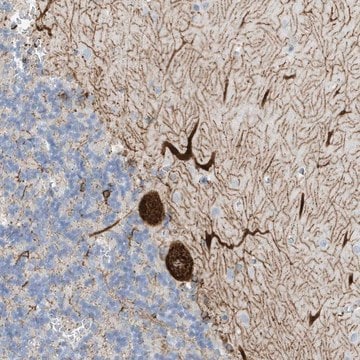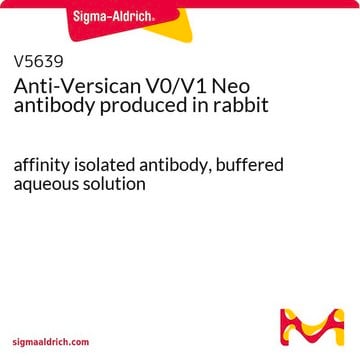推薦產品
生物源
rabbit
品質等級
抗體表格
affinity isolated antibody
抗體產品種類
primary antibodies
無性繁殖
polyclonal
純化經由
affinity chromatography
物種活性
human, mouse, rat
技術
immunohistochemistry: suitable
western blot: suitable
NCBI登錄號
UniProt登錄號
運輸包裝
wet ice
目標翻譯後修改
unmodified
基因資訊
human ... MGLL(11343)
一般說明
Monoglyceride lipase (MGL), or alternatively HU-K5, Lysophospholipase homolog, Lysophospholipase-like, or Monoacylglycerol lipase (MAGL) is a protein encoded by the MGLL gene in humans and is very important in lipid metabolism. Monoglyceride lipase is the enzyme that converts monoacylglycerides (key building blocks of lipids) into free fatty acid chains and glycerol. Also, Monoglyceride Lipase hydrolyzes endocannabinoids which ultimately can regulate nociperception and the perception of pain, so the enzyme is being studied in pain mediation therapies. Monoglyceride Lipase is expressed in many tissues including fat, lung, liver, brain and heart. In disease, Monoglyceride Lipase is being studied most intensely in cancer research. In some cancers it appears to be play a suppressive role in regulating AKT mediated signaling, but in others, since the enzyme regulates the levels of fatty acids that can serve as intra and intercellular signaling molecules, Monoglyceride lipase activity seems to promote cancer cell migration, invasion and growth.
免疫原
Recombinant protein corresponding to mouse MAGL.
應用
Immunohistochemistry Analysis: A 1:50 dilution from a representative lot detected MAGL in human cerebral cortex tissue.
Immunohistochemistry Analysis: A representative lot detected MAGL in human hippocampus tissue (Mulder, J., et al. (2011). Brain. 134:1041-1060).
Immunohistochemistry Analysis: A representative lot detected MAGL in human hippocampus tissue (Mulder, J., et al. (2011). Brain. 134:1041-1060).
Research Category
Neuroscience
Neuroscience
Research Sub Category
Developmental Signaling
Developmental Signaling
This Anti-MAGL Antibody is validated for use in Western Blotting and Immunohistochemistry for the detection of MAGL.
品質
Evaluated by Western Blotting in mouse brain tissue lysate.
Western Blotting Analysis: 0.5 µg/mL of this antibody detected MAGL in 10 µg of mouse brain tissue lysate.
Western Blotting Analysis: 0.5 µg/mL of this antibody detected MAGL in 10 µg of mouse brain tissue lysate.
標靶描述
~ 31/33 kDa observed. This protein can be alternatively spliced, so western blots may show a doublet. Evidence for alternative splicing of MAGL, can run as doublet, ~31 and ~33 kDa
外觀
Affinity purified
Purified rabbit polyclonal in buffer containing 0.1 M Tris-Glycine (pH 7.4), 150 mM NaCl with 0.05% sodium azide.
儲存和穩定性
Stable for 1 year at 2-8°C from date of receipt.
其他說明
Concentration: Please refer to lot specific datasheet.
免責聲明
Unless otherwise stated in our catalog or other company documentation accompanying the product(s), our products are intended for research use only and are not to be used for any other purpose, which includes but is not limited to, unauthorized commercial uses, in vitro diagnostic uses, ex vivo or in vivo therapeutic uses or any type of consumption or application to humans or animals.
Not finding the right product?
Try our 產品選擇工具.
儲存類別代碼
12 - Non Combustible Liquids
水污染物質分類(WGK)
WGK 1
閃點(°F)
Not applicable
閃點(°C)
Not applicable
分析證明 (COA)
輸入產品批次/批號來搜索 分析證明 (COA)。在產品’s標籤上找到批次和批號,寫有 ‘Lot’或‘Batch’.。
Ryan D Shepard et al.
Frontiers in synaptic neuroscience, 13, 689518-689518 (2021-06-15)
Adverse events and childhood trauma increase the susceptibility towards developing psychiatric disorders (substance use disorder, anxiety, depression, etc.) in adulthood. Although there are treatment strategies that have utility in combating these psychiatric disorders, little attention is placed on how to
Ping-Yuan Wang et al.
Cancer prevention research (Philadelphia, Pa.), 14(1), 31-40 (2020-09-23)
Germline mutations of TP53, which cause the cancer predisposition disorder Li-Fraumeni syndrome (LFS), can increase mitochondrial activity as well as fatty acid β-oxidation (FAO) in mice. Increased fatty acid metabolism can promote cancer malignancy, but its specific contribution to tumorigenesis
我們的科學家團隊在所有研究領域都有豐富的經驗,包括生命科學、材料科學、化學合成、色譜、分析等.
聯絡技術服務